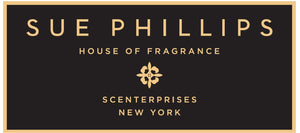Press
Jamie Foxx- Recently Visited The Scentarium™ In TriBeCa
Floral Design And Fragrance Making Workshops
Scenterprises is thrilled to be collaborating with GRAMERCY PARK FLOWER SHOP for a Flower/Fragrance Workshop to Excite the Senses!
Have a desire to learn about flowers and how to keep them looking their best? Searching for something a little untraditional to do with your friends this season? With our exciting new workshop series, you can learn from our expert designers how to properly arrange flowers to create a beautifully hand crafted arrangement and even create your own personalized perfume, compliments of Scenterprises. Combined with wine and cheese, you've got the perfect night out in New York City! Select from our classes in our Dumbo, Brooklyn location, or bring the party to you in the comfort of your own home or office! http://www.gramercyflowers.com/category-s/1830.htm
The Scentsational Sphere Of Custom Perfumery
Taylor Stein of Spafinder.com goes on a Scentsational perfume journey with Sue Phillips at The Scentarium.
View the Scentarium on 85 Franklin St in New York, NY and embark on your own scent experience here.
The Scentarium™ - For A Scentertaining™ Experience
Debbie Nigro Interviews Sue Phillips Of Scenterprises
Sue Phillips - Leading Bespoke Perfume Designer
To learn how to design your own bespoke perfume, why not attend a Fragrance Workshop at The Scentarium in trendy TriBeCa - NYC or treat your self to the new Scentarium Deluxe Perfume Making Kit.
Book Signing In New York - July 19th With Jean Williams
LUCILLE KHORNAK Invite - GALLERY EXHIBITION & PERFUME BLENDING EVENT
LUCILLE KHORNAK HOSTS A VIEWING OF HER ART PHOTOGRAPHY AND LUXURY PERFUME BLENDING SESSION FEATURING EXPERT BLENDER, SUE PHILLIPS ( creator of Tiffany, Burberry and more) AT THE LUCILLE KHORNAK GALLERY IN BRIDGEHAMPTON TO CELEBRATE ART HAMPTONS WEEKEND. STOP BY AND VIEW THE ART PHOTOGRAPHY OF LUCILLE KHORNAK AND CREATE YOUR VERY OWN ESSENCE ALL PARTICIPANTS AT THE EVENT CARRY HOME THEIR VERY OWN PERFUME. PRICES ON REQUEST. WHAT: LUCILLE KHORNAK EXHIBITION AND SCENTARIUM LUXURY PERFUME BLENDING EVENT WHERE: THE LUCILLE KHORNAK GALLERY 2400 MONTAUK HIGHWAY across from Bobby Van's BRIDGEHAMPTON
BETWEEN CHURCH & BROADWAY www.scenterprises.com VIEW MAP » WHEN:July12th, 2014, 4pm - 7pm
THE ART OF SCENT
Custom Perfumer Sue Phillips
Crains Business News: Niche Perfumers Sniff Opportunity
Crains Business News discovers the new and interesting opportunities now available in designing your own perfumes with Scenterprises.
https://www.crainsnewyork.com/article/20140304/SMALLBIZ/303029994/niche-perfumers-sniff-opportunity
PopSugar: Can You "Retrain" Your Nose To Smell Again After COVID? 1 Perfumer Says Yes
Up until last month, Ishir*, 14, hadn't smelled food — his favorite scent — for six months.
It started in November of last year, when he first lost his olfactory sense after contracting COVID-19. Of course, he's not alone in his experience: roughly 80 percent of people have reported anosmia, or a diminished sense of smell, as a symptom of the virus. What's more, a study by the American Academy of Neurology shows that half of people who lost their sense of smell had not regained it even five or more months later. Ishir fell in the latter category, often called "long-haulers" by members of COVID support groups.
"It was a rough first few months, but after a while you get used to it, unfortunately," he said, adding that nothing he tried worked. Then, after countless desperate Google searches, his mother came across a potential solution: veteran perfumer Sue Phillips.
Phillips had launched a scent therapy healing program amid the pandemic at her Upper East Side boutique in New York City, where she has helped more than 20 COVID survivors retrain their noses to smell again with targeted fragrance training. Clients could also book sessions via Zoom.
Read more: https://www.popsugar.com/beauty/covid-sensory-loss-scent-training-48362784
Ep8 With Scent Whisper Sue Phillips, LA Apparel With Marie Groezinger And Alexis Rheinwald-Jones
Tune In for the Fragrance, Stay for the Fashion! Meet the Scent Whisper, helping heal those who suffered Covid 19 smell loss! Meet Sue Phillips, who is known lately as the "ScentWhisperer!" Her signature works are with Burberry and Tiffany, today, she is healing people with helping regain their sense of smell, lost due to Covid 19. T. Coffee will be telling her magical story LIVE from her House of Fragrance on 64th Street in Manhattan, a must see.


